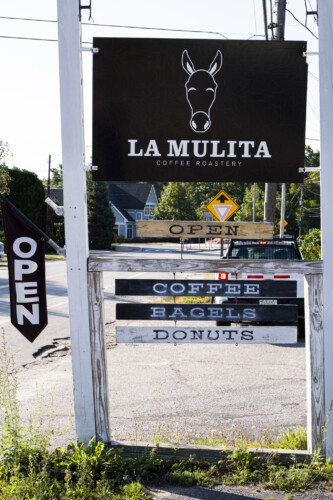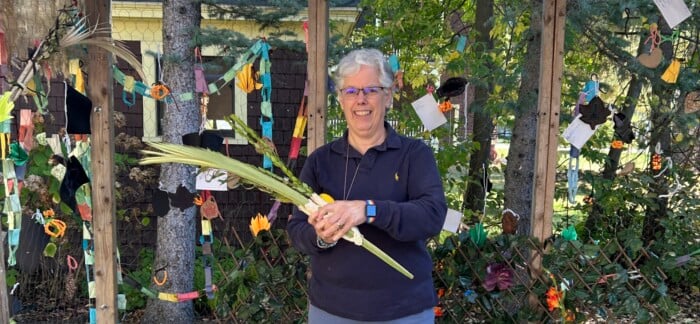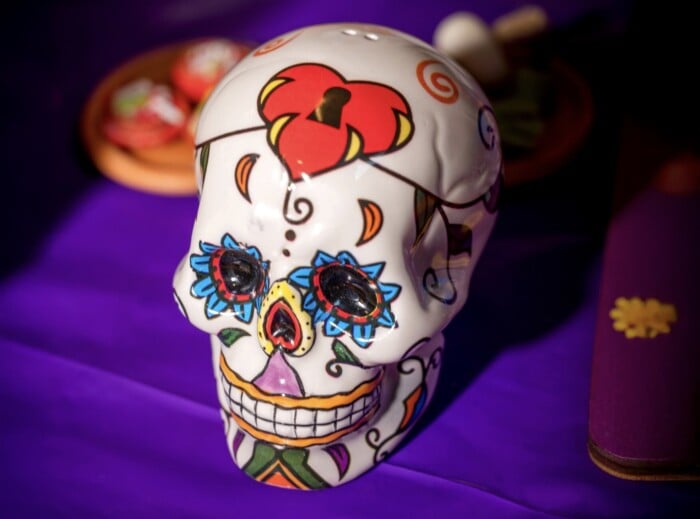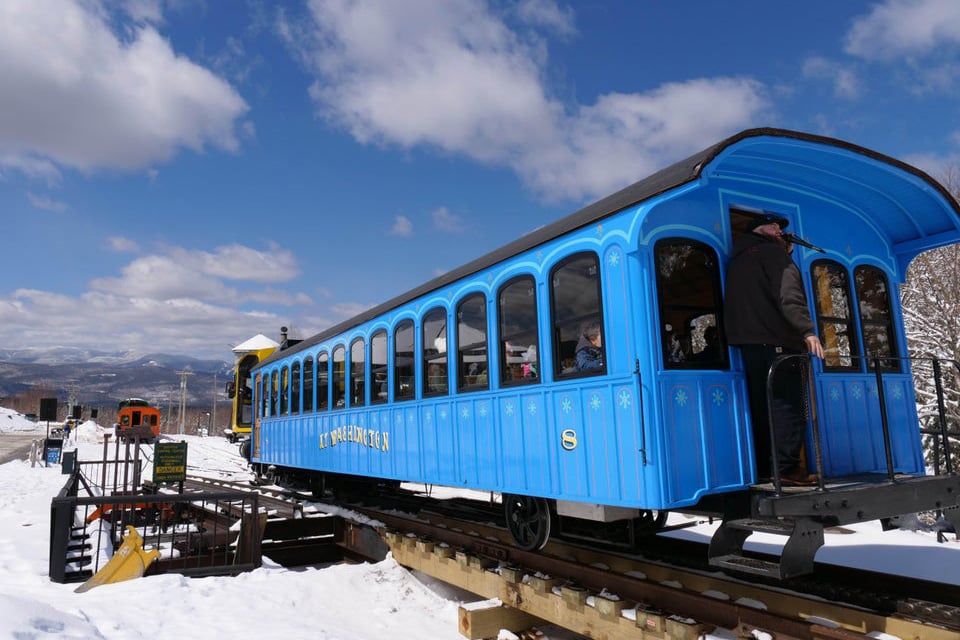Primed for Entrepreneurship
Immigrants in New Hampshire take on the risk of launching unique new businesses
When La Mulita Coffee first opened, Max Pruna spent a lot of time talking to customers.
Not many customers, he said, but a few very curious ones – those who wanted to know not just what made his Colombian coffee special, but who he was and where he was from, and why he came to New England.
New businesses often take time to get off the ground, but Pruna thinks his coffee shop faced a little extra headwind in Rye, where the coffee shop that is the face of his business is located.
“There aren’t too many Latinos within this area, so you don’t have a community already in place, so you have to make a great effort to explain where you’re coming from and what you’re trying to do,” Pruna said.
“I think the product and the origin of the coffee was not something new to them – I think ‘who’ was new, me as a person, bringing that forward, and the name of our company, that really was new,” he added.
Immigration as an economic driver
Immigrants in New Hampshire make up a small but significant part of the economy: They comprise 12.5% of the manufacturing industry, 8.4% of the education industry and 7.8% of the health care and social assistance industry, according to data from the 2023 American Community Survey compiled by the American Immigration Council. Despite being 7.1% of the population, they are 8.3% of the workforce.
Their participation can often bring something new to the state, whether it is a younger workforce to counteract the aging population or businesses unique to the area. A 2022 report from the Bipartisan Policy Center found that immigrants are likely more willing to start their own businesses because they are already primed to take risks by moving to the United States.
Changing policies at the federal level could alter the state’s small immigrant community by deterring people from coming to the United States or causing them to leave prematurely, said Steven Hubbard, a data scientist for the American Immigration Council.
“To stay ahead globally, we need to have workers from many different parts of the world come here. It makes us more competitive, especially in those STEM fields and those professional and scientific areas,” he said. “I think some of that’s going to be hurt when we’re making it very limited on which workers come to the United States.”
Similar concerns were raised by the state last fall, after a New Hampshire Employment Security bureau report found foreign-born residents have a higher workforce participation than the U.S. average.
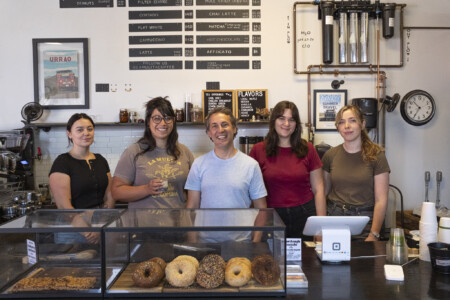
The La Mulita team (from left) Zoe Halldorson, Heather Buchanan, Max Pruna, Aimee Brunt and Alexandra Watson stand behind the counter. Photos by Michael Sterling
“Foreign-born workers who are not naturalized citizens are most at risk of changing U.S. immigration laws, and industries with a high concentration of noncitizen workers may struggle with labor shortages if widespread deportations, reduced visa quotas or other anti-immigration policies are enacted,” the report read. “Labor shortages would lead to increased competition for remaining workers in those sectors, driving up wages.”
With not enough young people entering the workforce to replace retiring workers, the state needs people from outside to survive, the bureau found.
“New Hampshire’s labor force will need to keep growing to support these obligations, and migration (both domestic and international) will be necessary to maintain labor force growth,” the report concluded.
Getting in the door
For Jose Mojica, getting a foothold in the Manchester community for his Puerto Rican-styled bakery started with word-of-mouth advertising. He originally came to the U.S. as an airline worker working out of Boston and Manchester before he decided to start Dulces Bakery, which specialized in tres leches.
After a rough patch during the COVID-19 pandemic, Dulces closed, but Mojica has since revived it as Dulces Bakery La Casa de los Tres Leches. He currently works out of a commissary kitchen in Manchester, but Mojica said he hopes to reopen a storefront or a food truck in the near future.
Having a Puerto Rican-focused business meant having something new that appealed to everyone, Mojica said. He sees it as an ability to connect with people from all over, and to have a unique business unlikely to be replicated.
“We weren’t competing with anybody,” he said. “That was the plan, to have something that nobody had.”
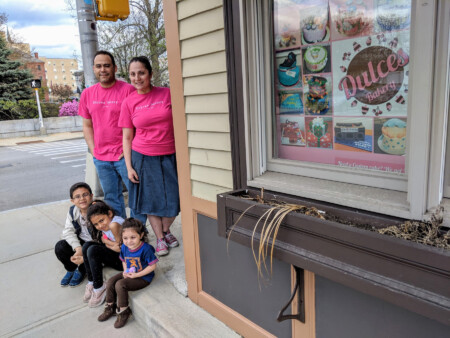
Jose and Angela Mojica, with their children, expanded Dulces Bakery in Manchester. Photo by Carol Robideaux/Ink Links News
Pruna, of La Mulita, came to New Hampshire in 1999 to study business. After working in insurance and a real estate side hustle for years, he became inspired to try coffee roasting after hearing a talk from renowned coffee roaster George Howell.
Pruna thinks he had some advantages when he opened La Mulita six years ago because people recognize Colombian-sourced coffee from the grocery store. But the first three years were a challenge, as people took time to understand the name of the company and its unique approach to coffee, which is grounded in direct sourcing from farmers in the Colombia mountains.
Initially, Pruna was unsure if he should name his business after the mules that coffee farmers use to transport their beans. In the end, that connection to Colombia is what he thinks will sustain his business into the future.
“The more I questioned it or brought up the name to other people in Spanish, the more they told me it would be better to name it La Mulita, which would be authentic – not only because it’s an important animal used by the farmers, but because it’s a great symbol,” he said.

